The following press release and graphics are from Rewiring America, “a coalition of engineers, entrepreneurs, and volunteers focused on rejuvenating the economy and addressing climate change by electrifying everything.” For more on why it’s crucial to electrify everything, see The key to tackling climate change: electricity everything by David Roberts.
100% Clean Energy Electrification Could Save Virginia Households $8 Billion and Create 200,287 Jobs
New Detailed Analysis Shows Clean Energy Electrification Would Save Average Virginia Household $2,461/Year, Create Jobs in Every Zip Code Across the State
Richmond, VA, February 16, 2021 – A new analysis by Rewiring America shows that transitioning to 100% clean energy through electrification would save Virginia as much as $8 Billion in energy costs each year while dramatically reducing economy-wide greenhouse gas emissions. The Rewiring America Report, “No Place Like Home : Virginia. Saving money and creating jobs by electrifying Virginia’s households.” by Drs. Saul Griffith and Sam Calisch, finds that savings would mean up to $2,461 per year in savings to each Virginia household’s energy bills. In addition, electrification would generate 200,287 jobs in the state. The report builds on an earlier analysis by Rewiring America that shows that clean energy electrification could create 25 million new jobs and save Americans $321 Billion in total. Every zip code in the state would see employment gains.
Today the average Virginia household spends approximately $4,200 per year on heating and cooling the home, generating hot water, and driving cars. Transitioning away from fossil fuels and electrifying the Virginia economy – replacing old fossil fuel-based machines with electric versions at every opportunity, and switching our electricity generation from dirty sources such as coal to clean ones such as rooftop solar – would provide significant savings to every Virginian.
“As Virginians continue to struggle to make ends meet, this analysis provides an exciting and desperately needed roadmap for a brighter future,” said Adam Zurofsky, Executive Director of Rewiring America.“If we do it right, electrifying the Virginia household presents a unique opportunity to create jobs, save families money, and dramatically slash harmful emissions in the process.”
This report from Rewiring America analyzes what these upgrades would cost households in each state and under what circumstances they could expect to save money.
Key findings of the report:
- Virginians as a whole would annually save $8 Billion.
- The benefits laid out in the report are strictly economic, independent of additional benefits electrification would bring in terms of health, climate, reduced maintenance costs, and more consistent performance.
- Massive industrial growth will be necessary to meet increased demand for electric machines and bring about lower costs over the longer term.
- New jobs would be created in every zip code in Virginia.
###
About Rewiring America
Rewiring America is a coalition of engineers, entrepreneurs, and volunteers focused on rejuvenating the economy and addressing climate change by electrifying everything. The new, innovative nonprofit is dedicated to demonstrating that solving climate change is both technically possible and economically beneficial. The reports produced by Rewiring America are deeply rooted in data and provide high-level analysis of the U.S. energy economy. www.rewiringamerica.org/
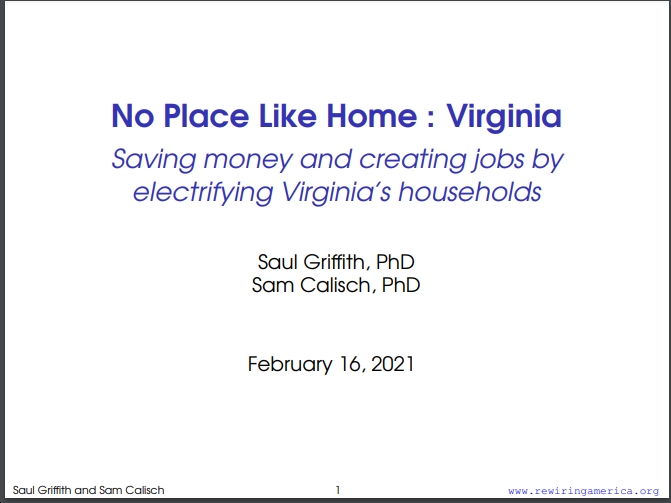
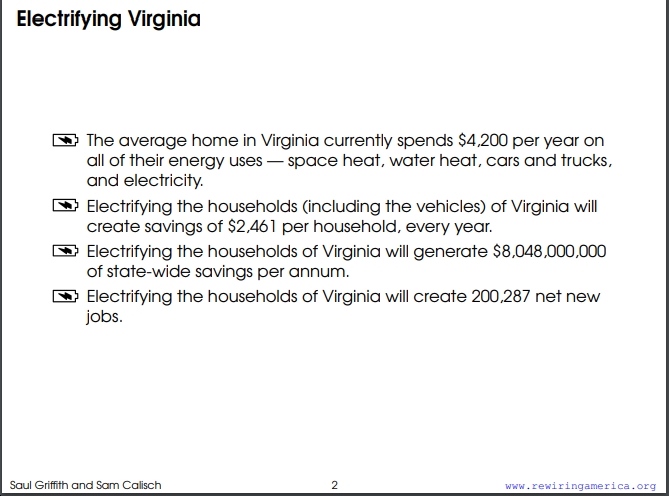
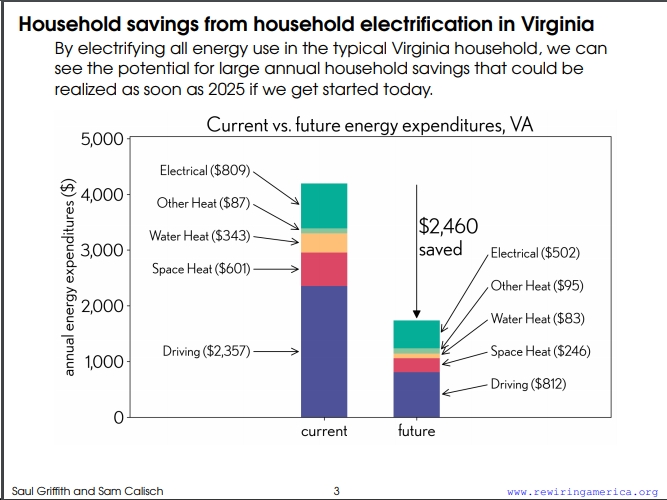
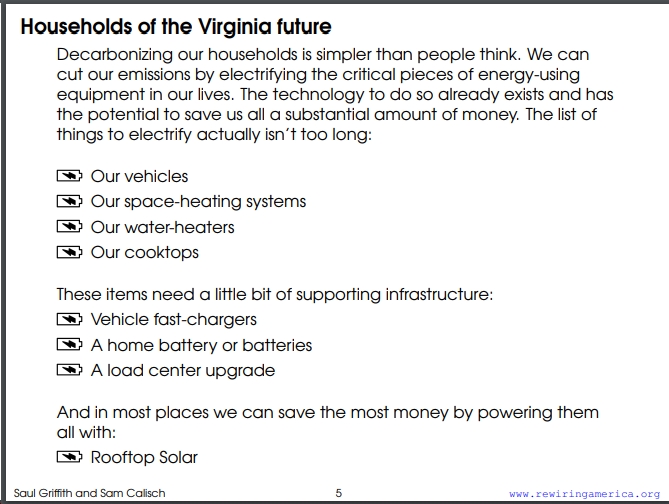
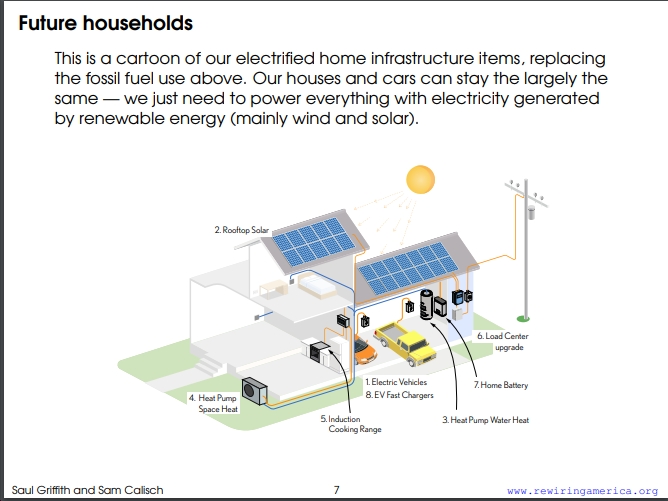
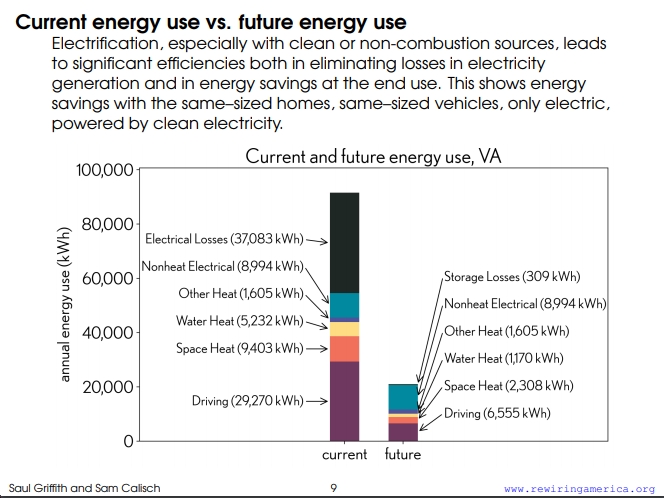
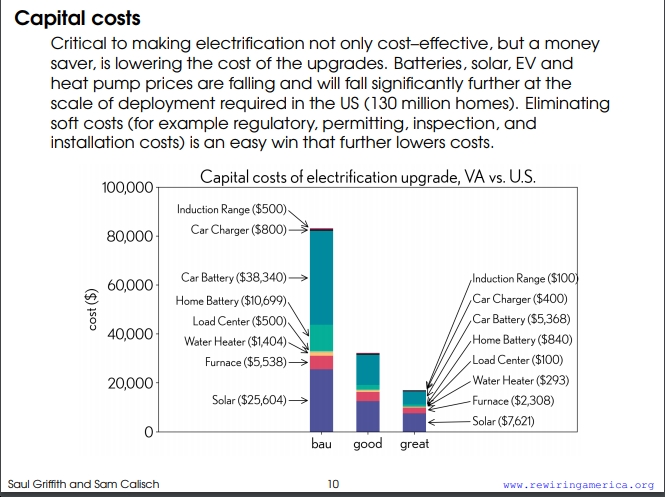
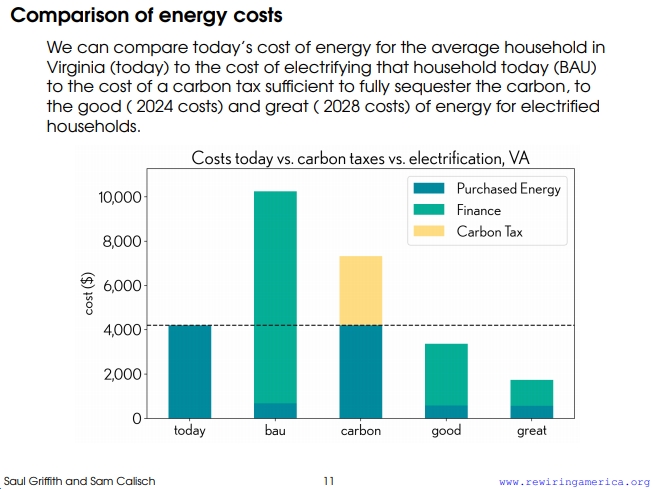
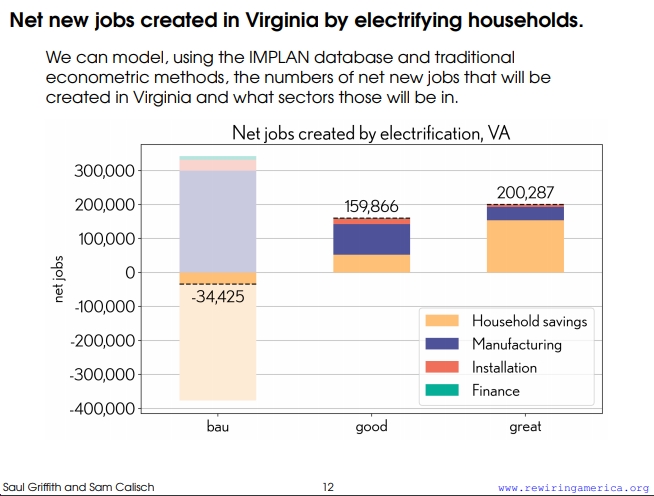




![Sunday News: “Trump Is Briefed on Options for Striking Iran as Protests Continue”; “Trump and Vance Are Fanning the Flames. Again”; “Shooting death of [Renee Good] matters to all of us”; “Fascism or freedom? The choice is yours”](https://bluevirginia.us/wp-content/uploads/2026/01/montage011126.jpg)
![VA DEQ: “pollution from data centers currently makes up a very small but growing percentage of the [NoVA] region’s most harmful air emissions, including CO, NOx and PM2.5”](https://bluevirginia.us/wp-content/uploads/2026/01/noxdatacenters.jpg)












